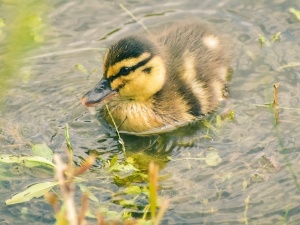
The incubation stage can be a very nerve-wracking time for you, you may want to help the duckling hatch in an effort to help the bird but baby ducks need to hatch on their own, helping them hatch can result in a variety of adverse effects.
But what if a duckling dies when hatching, why did this happen and could you have stopped it? This article looks into it.
Table of Contents
Duckling died when hatching:
Waiting for your baby duck to hatch, and the baby duck dying while hatching, can be heartbreaking, here are reasons why this may have happened:
Weakness:
Some baby ducks aren’t as strong as their siblings. Weak ducklings may be strong enough to initially break through the shell but may die mid-hatching.
Other ducklings may be strong enough to break through their shells but they may not be strong enough to stay alive after they have broken through their shells.
What to do:
Wait 24-48 hours after the first pip before doing anything. Because hatching is such a tiresome process the bird may simply be resting after initially pipping and may not be dead.
If the bird is dead you would need to get rid of it. You need to make sure that the baby bird is in fact dead before you decide to get rid of the bird.
Assisted hatching:
Assisted hatching sounds like a good idea, and it can be a very good idea when needed, but doing this is not recommended if a duckling doesn’t actually need it.
Assisted hatching is when you help a duckling hatch out of its shell because it’s having trouble doing so itself. Unfortunately, assisted hatching can kill a duckling.
Hatching can be a long process for a duckling, this process can take 12 to 48 hours after the initial pip. You may be inclined to help the bird after it has initially pipped, but this is not recommended.
It may seem as though nothing is happening after the bird initially pips but this is when the bird will start learning how to breathe, absorb the yolk sac and absorb the blood vessels.
If you help the bird out of the egg at this time then you may cause the bird’s blood vessels to bleed out and cause the bird to die.
What to do:
The best way to keep a duckling’s death from happening in future is to avoid prematurity trying to help the bird hatch.
It is normal for ducklings to take a while to hatch. As long as the bird has internally and externally pipped you can leave the bird be. The bird should start zipping (cracking all around the shell) hours after the external pip.
Sticky chick:
This scenario can cause your bird to become stuck in the egg and die in the egg while it’s trying to hatch. Sticky chick can happen if the humidity levels in your incubator drop while the bird is hatching.
A duck egg is made up of a shell, the duckling, an air pocket, and a membrane over the duck. If the humidity levels in the incubator drop then the membrane will stick and dry onto the chick once the bird pips the air sack.
The membrane, when stuck to the chick, acts like glue on the bird’s body keeping it from hatching and causing the bird to die during the hatching process.
What to do:
This is a situation where you can help the bird hatch, though it may still be dangerous. If you choose to do this you still run the risk of rupturing a blood vessel.
The bird in this case is still less likely to die from being trapped in the membrane than to die from a ruptured blood vessel. You’d need to allow the blood vessels to absorb into the bird before you assist the chick.
If you do decide to help this chick out, you’d need to make sure that you hydrate the bird once it hatches. Ducklings can quickly become dehydrated after hatching.
If you help the bird hatch, but don’t give it water soon after, the bird can later die of dehydration
Keep this from happening in future by maintaining the humidity levels in the incubator at all times. Do not open the incubator during hatching.
Drowning:
A baby duckling runs the risk of drowning while hatching, and this can kill the bird.
Water evaporates out of the egg during incubation. If enough water can’t evaporate from the egg during incubation then the water will drown the bird while it is trying to hatch.
A duckling will start to breathe once it pips, if there is too much water in the egg, especially around the bird’s nostrils, then the bird will inhale this water and drown.
A bird that has drowned will have a thick coating around its nostrils, you will see this when you break open the shell to check on the bird.
What to do:
If the bird has already died then there is nothing you can do about this situation.
You can however keep this from happening in the future by maintaining an appropriate humidity level thus enabling water to evaporate out of the egg.
If you enjoyed this article then you may also be interested in other chicken related articles. Here are some articles that you may be interested in: Duck Swollen Leg, Duck Feathers Look Bad, Duck Eggs Not Hatching Day 30

